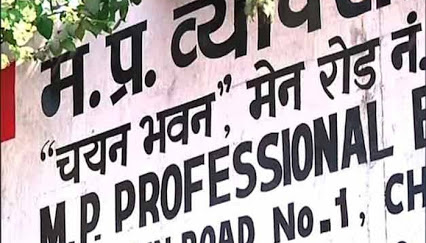New Delhi/Bhopal, Aug 9: In a latest update, seventy Vyapam scam accused who are lodged in Gwalior Jail of Madhya Pradesh have written to President Pranab Mukherjee requesting him to either grant them bail or allow them "iccha mrityu" (suicide by legal sanction).
 Apart from the President, the letter has also been sent to Prime Minister, Home Minister, NHRC and Jabalpur High Court.
Apart from the President, the letter has also been sent to Prime Minister, Home Minister, NHRC and Jabalpur High Court.
In the letter to Pranab Mukherjee, the accused have sought permission for euthanasia, as they said the slow pace of investigation into the mysterious Vyapam scam delaying them justice.
Meanwhile, the jail authorities have denied about any such letter.
The perceived death toll in the Vyapam scam has reportedly touched 49. After the long trail of mysterious deaths came to the fore, and particularly after journalist Akshay Singh’s death while investigating the scam, the opposition parties have gone after the Shivraj Singh Chouhan-led BJP government in Madhya Pradesh.
Apart from Singh a number of other accused and witnesses in the infamous Vyapam scam have died mysteriously. Even whistleblower Ashish Chaturvedi, 26, claimed that there was a grave threat to his life and accused Shivraj Singh Chouhan of being "directly involved" in the scam, a charge rubbished by the CM.
Earlier in July, five students Amit Chadha, Manish Gupta, Vikash Gupta, Raghavendra Bhadauria and Pankaj Bansal - from Madhya Pradesh's Gajra Raja Medical College who were accused in the Vyapam scam too had written to the President seeking permission to die, but they had made this move as they had been cleared in the case by the police but were continued to be discriminated by their college lecturers and fellow students.
The CBI had yesterday registered three separate cases against five persons in connection with alleged irregularities in the conduct of admissions and recruitment examinations by Madhya Pradesh Professional Examination Board also known as Vyapam.
The Supreme Court had earlier given a rap on the knuckles of CBI asking its take over probe in all the Vyapam cases by August 24. It expressed disagreement with CBI's contention that stress should be laid on setting up more special courts, at least five in Bhopal.
Huge irregularities in recruitments for various government jobs by Madhya Pradesh Professional Examination Board, or Vyapam, are being probed by CBI following a Supreme Court direction in this regard.
Professionals, high-profile politicians and bureaucrats are believed to be involved in the case. Former state Education Minister Laxmikant Sharma and several top bureaucrats are currently in jail in connection with the scam.
Madhya Pradesh Governor Ram Naresh Yadav has also been accused of favouring some aspirants.





Comments
Add new comment